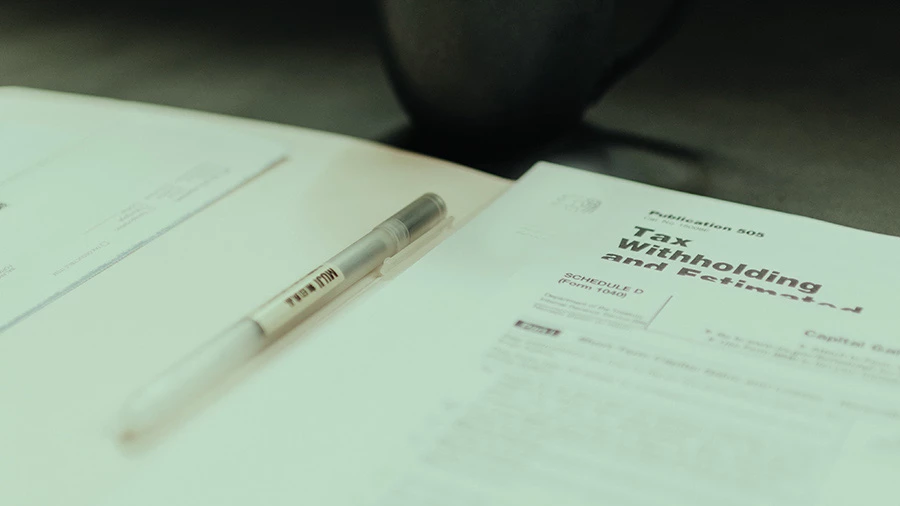In our China Monthly Tax Brief for July 2023, we discuss the extension of some noteworthy preferential tax policies and treatment till the end of 2027. Further, the tax authority has released multiple guidelines to help businesses understand the applicable preferential tax policies.
In July of this year, there were several noteworthy developments regarding preferential tax policies and treatment in China.
Among others, China has extended several tax incentives till the end of 2027 to encourage tech innovation and support small businesses, including CIT, VAT, and access to preferential treatment.
Meanwhile, the State Taxation Administration (STA) issued several guidelines to facilitate the application of tax incentives, such as the two guidelines on the super deduction of research and development (R&D) expenses, the guideline for the application of tax incentives offered to the education sectors, as well as the guideline for enjoying tax incentives offered to encourage youth employment and entrepreneurship.
Multiple tax incentives extended to the end of 2027 to encourage tech innovation and support real economy and small businesses
On July 24, 2023, the Political Bureau of the Central Committee of the Communist Party of China held a meeting to analyze and study the difficulties facing the economy and deploy the economic work for the second half of the year.In view of the current economic headwinds, such as the insufficient domestic demand and geopolitical tensions, the meeting provided a series of policy support measures for businesses.
In terms of fiscal policy, the meeting proposed to extend and optimize China’s tax reduction and reduction policies, and vigorously support scientific and technological innovation, the real economy, and the development of micro, small, and medium-sized enterprises.
A week after the meeting, the Ministry of Finance (MOF), the STA, the Ministry of Human Resources and Social Security (MOHRSS), together with the Ministry of Agriculture and Rural Affairs (MARA) and the Ministry of Veterans Affairs (MVA) issued nine announcements, which were:
- Announcement on Tax Policies to Further Support the Development of Small and Micro Enterprises and Individually Owned Businesses (MOF STA Announcement [2023] No.12)
- Announcement on Matters Related to Further Implementation of Preferential Policies for Supporting the Development of Individually Owned Businesses (STA Announcement [2023] No.12)
- Announcement on Tax Policies to Support the Financing of Small and Micro Enterprises (MOF STA Announcement [2023] No.13)
- Announcement on Tax Policies to Further Support Independent Employment and Entrepreneurship of Retired Soldiers (MOF STA MVA Announcement [2023] No.14)
- Announcement on Tax Policies to Further Supporting Entrepreneurship and Employment of Key Groups (MOF STA MOHRSS MARA Announcement [2023] No.15)
- Announcement on the VAT exemption Policy for Interest Income from Loans to Small and Micro Enterprises of Financial Institutions (MOF STA Announcement [2023] No.16)
- Announcement on the Continuation of the Implementation of the Policy Conditions for Venture Capital Enterprises and Angel Investment Individuals to Invest in Science and Technology Startups (MOF STA Announcement [2023] No.17)
- Announcement on the Continuation of the Implementation of the VAT Policy on Financing Guarantees for Farmers, Small and Micro Enterprises, and Individually Owned Businesses (MOF STA Announcement [2023] No.18)
- Announcement on Value-Added Tax (VAT) Exemption Policy for Small-Scale Taxpayers (MOF STA Announcement [2023] No.19)
| Tax Incentives Extended to December 31, 2027 | ||
| Legal basis | Who can enjoy? | Tax incentives |
| MOF STA Announcement [2023] No.12
|
Small and low profit enterprises (SLPEs) | SLPEs would be subject to a 20 percent CIT rate on 25 percent of their taxable income amount. That is to say, the effective tax rate for SLPEs is five percent.
|
| (MOF STA Announcement [2023] No.19
|
Small-scale taxpayers | Small-scale taxpayers with monthly sales of under RMB 100,000 (approx. US$14,740) shall be exempted from VAT. Small-scale taxpayers with monthly sales of over RMB 100, 000 that are subject to a VAT levy rate of 3 percent can enjoy a reduced levy rate of 1 percent.
|
| MOF STA Announcement [2023] No.12
|
Small-scale taxpayers, SLPEs, and individually owned businesses | Small-scale taxpayers, SLPEs, and individually owned businesses could enjoy reduction of “six taxes and two fees” by 50 percent of the tax amount.
“Six taxes” refer to urban maintenance and construction tax, property tax, urban and township land use tax, stamp tax (excluding securities transaction stamp tax), farmland occupation tax, and resource tax (excluding tax on water resources). “Two fees” refer to education surcharges and local education surcharges.
Small businesses can still enjoy this 50 percent reduction of “six taxes and two fees” policy even if they have enjoyed other preferential treatment of the “six taxes and two fees” according to law.
|
| MOF STA Announcement [2023] No.12, STA Announcement [2023] No.12
|
Individually owned businesses | Individually owned businesses could enjoy a 50 percent reduction of their payable individual income tax (IIT) amount for the portion of taxable income not exceeding RMB 2 million (approx. US$305, 600). Enjoying this preferential IIT policy shall not affect the eligibility for other IIT incentives.
|
| MOF STA Announcement [2023] No.17 | Venture capital companies (corporations or limited partnerships), partners (corporate partners and individual partners), and angel investment individuals | Venture capital companies (corporations or limited partnerships), partners (corporate partners and individual partners), and angel investment individuals making investment to seed-stage or start-up technology enterprises can deduct 70 percent of the investment amount from the taxable income at in the year when the equity is held for two years.
If the angel investor transfers the equity of the invested enterprise, it can also be deducted from the taxable income of the equity transfer.
Considering that angel investors bear higher risks in investing in such science and technology enterprises, if 70 percent of their investment is cancelled before the deduction of the invested enterprise, the remaining part can be used to deduct the taxable income obtained from the equity of other science and technology enterprises invested by the angel investors within 36 months. It is expected to encourage more venture capital investment in technology startups. |
| MOF STA Announcement [2023] No.16 | Financial institutions | Financial institutions are exempted from paying VAT on their interest income derived from small loans to small and micro enterprises and individually owned businesses.
|
| MOF STA Announcement [2023] No.16 | Small or micro enterprises and financial institutions | Loan contracts signed between small or micro enterprises and financial institutions are exempt from stamp tax.
|
| MOF STA Announcement [2023] No.18 | Taxpayers providing guarantee to farmers small and micro enterprises, and individually owned businesses | Guarantee premium income and re-guarantee premium income obtained from providing financial assurance for farmers, small and micro enterprises, and individually owned businesses’ loan and bond issuance is exempt from VAT.
|
| MOF STA MVA Announcement [2023] No.14, MOF STA MOHRSS MARA Announcement [2023] No.15 | Retired soldiers and people out of poverty | Retired soldiers, people out of poverty, holders of "Employment and entrepreneurship Certificate" or "Employment and Unemployment Registration Certificate" who start businesses may deduct the VAT, surtaxes, and IIT actually paid in that year according to a fixed limit of RMB 20,000 (approx. US$3,056) per person per year. |
| Enterprises employing retired soldiers or other key groups | Enterprises employing retired soldiers and the aforesaid key groups can deduct VAT, surtaxes, and CIT for RMB 6,000 (approx. US$917) per person per year.
|
|
We believe that by extending these preferential policies, the Chinese government has provided greater certainty for both Chinese and foreign investors when setting up new and additional investments in China. If a country's tax policy changes frequently or is unstable, investors will face higher risks. By extending and enhancing preferential policies, the Chinese government has sent a signal of policy stability to foreign investors. This allows foreign investors to be more certain about costs and investment returns over the long term, which is expected to increase foreign investors' confidence in the Chinese market.
More details about the extension of tax incentives for small businesses can be found in our China Briefing article here.
STA issued multiple guides for easier application of preferential tax policies
In order to further promote the implementation of tax reduction and fee reduction policies, in July, the STA issued multiple guidelines, including:- Guidelines for the Implementation of R&D Expense Deduction Policy (Version 2.0)
- Guidelines on Preferential Tax Policy for Supporting Coordinated Development
- Guidelines on Preferential Tax Policy for Supporting Shared Development
- Guidelines on Preferential Tax Policy for Supporting the Development of Education Sector
- Guidelines on Preferential Tax Policy for Supporting College Graduates and Other Young People in Employment and Entrepreneurship
China's tax policies, especially the regulations and provisions involved in preferential tax policies for different industries and different regions, are very complex. Sorting out policy guidelines can help enterprises and taxpayers better understand and apply for corresponding tax incentives. Meanwhile, by sorting out relevant guidelines, tax authorities hope to better promote the development of relevant industries and regional economic growth, and to guide the direction of investment.
However, we suggest that the tax department of enterprises have a deeper understanding of the conditions and requirements of tax incentives, and actively communicate with the competent tax bureau to clarify the application scenarios of preferential policies to avoid unnecessary tax risks and tax disputes. We recommend that enterprises seek effective tax incentives according to their business model and business needs, avoid aggressive tax planning, and ensure scientific and reasonable application of tax incentives through consultation with professional tax advisers.
The China Monthly Tax Brief is a new series produced in association with the experts at Dezan Shira & Associates' China practice.











